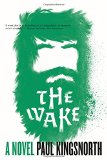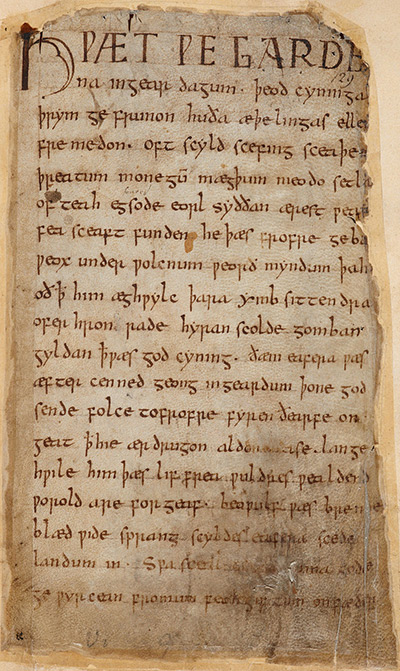Summary | Excerpt | Reviews | Beyond the Book | Read-Alikes | Genres & Themes | Author Bio

 Book Reviewed by:
Book Reviewed by:
James Broderick
Buy This Book
This article relates to The Wake
The phrase "Old English" might seem like a quaint way to refer to any works in English that we now consider "old" – Milton, Shakespeare, Chaucer, et al. But in fact Old English – the language whose rhythms and vocabulary inspired Paul Kingsnorth's novel The Wake – would be unrecognizable by readers and speakers of the contemporary language.
Broadly speaking, Old English is the term used to describe the language and dialects of England in the period after the fall of the Roman Empire and before the Norman Conquest. Around the fifth century A.D., after the Roman Empire had collapsed, people from other parts of Europe migrated to Britain. According to early records, they were predominantly Germanic tribes from the Saxony area. The merging of the Britons and the settlers gave rise to a people, known today as the Anglo-Saxons. The language also changed with the merging of Brittonic (a Celtic language) and the tongues of the new settlers to form what is known as "Old English." Interestingly, despite Latin having been the language spoken by the ruling class of Romans, very little of it appears to have survived into Old English.

Among the many literary works that have been bequeathed to posterity in Old English is that bane of most high school students' English literature experience, Beowulf, an adventure tale written sometime between the 8th and 11th century. Other documents that have come down to us in Old English include legal codes and religious texts, the most famous among them a work simply called "Hymn" by a monk named Cædmon. Here are a few lines, with translation in more contemporary English immediately following:
Nu we sculan herian heofonrices weard
Metudes myhte ond his modgebanc
Wurc wuldorfaeder.
[Now we should praise the Ward of heaven's kingdom
The might of God and His wisdom
The work of the Glory-Father.]
The beginning of the end for Old English came after the Norman Conquest of England in 1066. In the ensuing decades, although Old English or its various dialects continued to be spoken in parts of England, the influence of French (which was decreed the official language) rapidly began to change the nature of Old English, infusing it with French vocabulary and syntax.
Even so, it was nearly impossible for the French to do business throughout the provinces without speaking at least some Old English to communicate with the English population. The resulting hybrid that arose from this mash-up of French-Old English-Latin and local dialect gave rise to what scholars have termed "Middle English," the broad name given to the various dialects spoken in England after the Norman conquest until the fifteenth century. Over the next couple of centuries a transition in English took place that brought the language closer to what we would recognize today, altering the pronunciation of so-called "long" vowels from the traditional Germanic to a newer and more open sound. Linguists refer to this process as "The Great Vowel Shift." Yet Old English lives on, providing the roots for thousands of words still in use today, such as brother ("broder," in OE), House ("hus"), Right ("riht"), and wife ("wif").
Picture of the first folio of Beowulf written in Old English. Part of the Cotton MS Vitellius A XV manuscript currently located within the British Library. From British Library
Filed under People, Eras & Events
![]() This article relates to The Wake.
It first ran in the October 21, 2015
issue of BookBrowse Recommends.
This article relates to The Wake.
It first ran in the October 21, 2015
issue of BookBrowse Recommends.





The House on Biscayne Bay
by Chanel Cleeton
As death stalks a gothic mansion in Miami, the lives of two women intertwine as the past and present collide.

The Flower Sisters
by Michelle Collins Anderson
From the new Fannie Flagg of the Ozarks, a richly-woven story of family, forgiveness, and reinvention.

The Funeral Cryer by Wenyan Lu
Debut novelist Wenyan Lu brings us this witty yet profound story about one woman's midlife reawakening in contemporary rural China.
Your guide toexceptional books
BookBrowse seeks out and recommends the best in contemporary fiction and nonfiction—books that not only engage and entertain but also deepen our understanding of ourselves and the world around us.